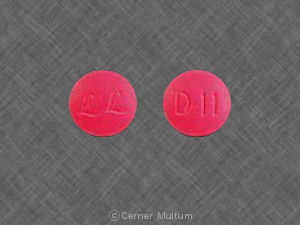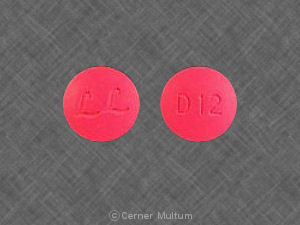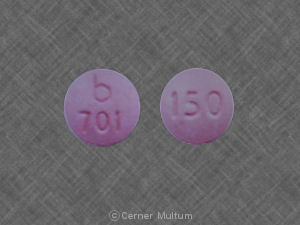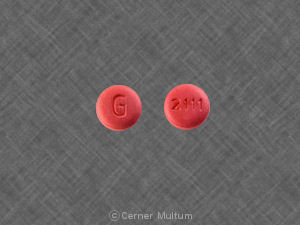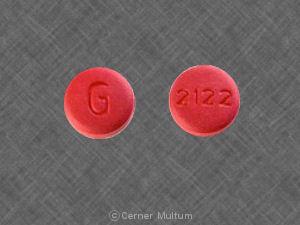What is the most important information I should know about demeclocycline?
You should not take this medication if you are allergic to demeclocycline or to similar antibiotics such as doxycycline (Adoxa, Alodox, Avidoxy, Oraxyl, Doryx, Oracea, Vibramycin), minocycline (Dynacin, Minocin, Solodyn), or tetracycline (Ala-Tet, Brodspec, Panmycin, Sumycin, Tetracap).
Do not use demeclocycline if you are pregnant. It could harm the unborn baby or cause permanent tooth discoloration later in life.
Demeclocycline can make birth control pills less effective. Ask your doctor about using a non-hormone method of birth control (such as a condom, diaphragm, spermicide) to prevent pregnancy while taking demeclocycline.
Demeclocycline passes into breast milk and may affect bone and tooth development in a nursing baby. You should not breast-feed while you are taking demeclocycline.
Do not give demeclocycline to a child younger than 8 years old. Demeclocycline can affect a child's growth or cause permanent yellowing or graying of the teeth.
Avoid exposure to sunlight or tanning beds. Demeclocycline can make you sunburn more easily. Wear protective clothing and use sunscreen (SPF 30 or higher) when you are outdoors.
Do not take iron supplements, multivitamins, calcium supplements, antacids, or laxatives within 2 hours before or after taking demeclocycline. Also avoid a product that contains bismuth subsalicylate (such as Pepto-Bismol) within 2 hours before or after taking demeclocycline. These medications can make it harder for your body to absorb demeclocycline.
Throw away any unused demeclocycline after the expiration date on the label has passed.
What is demeclocycline?
Demeclocycline is a tetracycline antibiotic. It fights bacteria in the body.
Demeclocycline is used to treat many different bacterial infections, such as urinary tract infections, acne, gonorrhea, chlamydia, and others.
Demeclocycline may also be used for purposes not listed in this medication guide.
What should I discuss with my healthcare provider before taking demeclocycline?
You should not take this medication if you are allergic to demeclocycline or to similar antibiotics such as doxycycline (Adoxa, Alodox, Avidoxy, Oraxyl, Doryx, Oracea, Vibramycin), minocycline (Dynacin, Minocin, Solodyn), or tetracycline (Ala-Tet, Brodspec, Panmycin, Sumycin, Tetracap).
To make sure you can safely take demeclocycline, tell your doctor if you have any of these other conditions:
- kidney disease;
- liver disease; or
- diabetes.
If you are being treated for gonorrhea, your doctor may test you to make sure you do not also have syphilis, another sexually transmitted disease.
FDA pregnancy category D. Do not use demeclocycline if you are pregnant. It could harm the unborn baby or cause permanent tooth discoloration later in life. Use effective birth control, and tell your doctor if you become pregnant during treatment.
Demeclocycline can make birth control pills less effective. Ask your doctor about using a non-hormone method of birth control (such as a condom, diaphragm, spermicide) to prevent pregnancy while taking demeclocycline.
Demeclocycline passes into breast milk and may affect bone and tooth development in a nursing baby. You should not breast-feed while you are taking demeclocycline.
Do not give demeclocycline to a child younger than 8 years old. Demeclocycline can affect a child's growth or cause permanent yellowing or graying of the teeth.
How should I take demeclocycline?
Take exactly as prescribed by your doctor. Do not take in larger or smaller amounts or for longer than recommended. Follow the directions on your prescription label.
Take demeclocycline on an empty stomach, at least 1 hour before or 2 hours after a meal.
Take this medication for the full prescribed length of time. Your symptoms may improve before the infection is completely cleared. Demeclocycline is usually given for up to 2 days after lab tests show that the infection has cleared. Demeclocycline will not treat a viral infection such as the common cold or flu.
Do not share this medication with another person, even if they have the same symptoms you have.
If you take this medication long-term, your blood will need to be tested often. Your kidney and liver function may also need to be tested. Visit your doctor regularly.
Store at room temperature away from moisture, heat, and light. Throw away any unused demeclocycline after the expiration date on the label has passed.
What happens if I miss a dose?
Take the missed dose as soon as you remember. Skip the missed dose if it is almost time for your next scheduled dose. Do not take extra medicine to make up the missed dose.
What happens if I overdose?
Seek emergency medical attention or call the Poison Help line at 1-800-222-1222.
What should I avoid while taking demeclocycline?
Do not take demeclocycline with milk or other dairy products, unless your doctor has told you to. Dairy products can make it harder for your body to absorb the medicine.
Demeclocycline may impair your thinking or reactions. Be careful if you drive or do anything that requires you to be alert.
Avoid exposure to sunlight or tanning beds. Demeclocycline can make you sunburn more easily. Wear protective clothing and use sunscreen (SPF 30 or higher) when you are outdoors.
Do not take iron supplements, multivitamins, calcium supplements, antacids, or laxatives within 2 hours before or after taking demeclocycline. Also avoid a product that contains bismuth subsalicylate (such as Pepto-Bismol) within 2 hours before or after taking demeclocycline. These medications can make it harder for your body to absorb demeclocycline.
What are the possible side effects of demeclocycline?
Get emergency medical help if you have any of these signs of an allergic reaction: hives; difficulty breathing; swelling of your face, lips, tongue, or throat.
Stop using demeclocycline and call your doctor at once if you have a serious side effect such as:
- fever, chills, body aches, flu symptoms;
- easy bruising, unusual bleeding (nose, mouth, vagina, or rectum), purple or red pinpoint spots under your skin;
- pale skin, dark colored urine, jaundice (yellowing of the skin or eyes);
- confusion, mood changes, weakness, increased thirst or urination;
- swelling, weight gain, urinating less than usual or not at all;
- chest pain, wheezing, dry cough, rapid breathing, feeling short of breath;
- severe tingling, numbness, pain, muscle weakness;
- headache, ringing in your ears, dizziness, nausea, vision problems, pain behind your eyes;
- sore throat and headache with a severe blistering, peeling, and red skin rash; or
- severe pain in your upper stomach spreading to your back, nausea and vomiting, fast heart rate.
Less serious side effects may include:
- sores or swelling in your rectal or genital area;
- mild nausea, vomiting, diarrhea, loss of appetite;
- white patches or sores inside your mouth or on your lips;
- swollen tongue, trouble swallowing; or
- vaginal itching or discharge.
This is not a complete list of side effects and others may occur. Call your doctor for medical advice about side effects. You may report side effects to FDA at 1-800-FDA-1088.
What other drugs will affect demeclocycline?
Tell your doctor about all other medicines you use, especially:
- colestipol (Colestid);
- methotrexate (Rheumatrex, Trexall);
- isotretinoin (Accutane);
- vitamin A or a retinoid such as acitretin (Soriatane) or tretinoin (Renova, Retin-A, Vesanoid);
- an antacid such as Tums, Rolaids, Milk of Magnesia, Maalox, and others;
- a blood thinner such as warfarin (Coumadin); or
- a penicillin antibiotic such as amoxicillin (Amoxil, Trimox, others), penicillin (BeePen-VK, Pen-Vee K, Veetids, others), dicloxacillin (Dynapen), oxacillin (Bactocill), and others.
This list is not complete and other drugs may interact with demeclocycline. Tell your doctor about all medications you use. This includes prescription, over-the-counter, vitamin, and herbal products. Do not start a new medication without telling your doctor.
Where can I get more information?
Your pharmacist can provide more information about demeclocycline.
Remember, keep this and all other medicines out of the reach of children, never share your medicines with others, and use this medication only for the indication prescribed.
Every effort has been made to ensure that the information provided by Cerner Multum, Inc. ('Multum') is accurate, up-to-date, and complete, but no guarantee is made to that effect. Drug information contained herein may be time sensitive. Multum information has been compiled for use by healthcare practitioners and consumers in the United States and therefore Multum does not warrant that uses outside of the United States are appropriate, unless specifically indicated otherwise. Multum's drug information does not endorse drugs, diagnose patients or recommend therapy. Multum's drug information is an informational resource designed to assist licensed healthcare practitioners in caring for their patients and/or to serve consumers viewing this service as a supplement to, and not a substitute for, the expertise, skill, knowledge and judgment of healthcare practitioners. The absence of a warning for a given drug or drug combination in no way should be construed to indicate that the drug or drug combination is safe, effective or appropriate for any given patient. Multum does not assume any responsibility for any aspect of healthcare administered with the aid of information Multum provides. The information contained herein is not intended to cover all possible uses, directions, precautions, warnings, drug interactions, allergic reactions, or adverse effects. If you have questions about the drugs you are taking, check with your doctor, nurse or pharmacist.
Copyright 1996-2018 Cerner Multum, Inc. Version: 7.02. Revision date: 12/15/2010.
